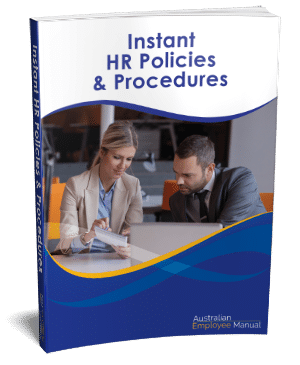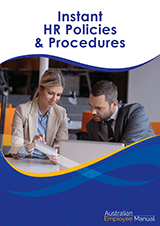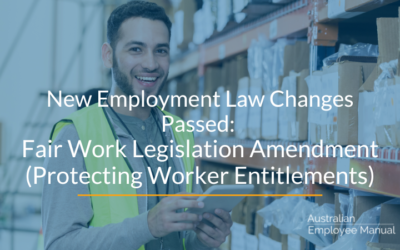Small business owners often make mistakes when it comes to calculating employee pay and conditions. Small errors can add up over time and cause bigger problems down the track.
Many cases before industrial tribunals have resulted in small businesses having to pay back significant amounts of money due to underpayment or non-compliance, which can cause major cash flow issues.
Many of these cases have also been reported in the media, creating damage to the business’s reputation
To avoid these issues, it’s important to ensure that your employees’ pays are always accurate and compliant with the law.
The National Employment Standards
The National Employment Standards (NES) are 11 minimum employment entitlements that apply to all employees in Australia. These entitlements provide a basic set of rights that every employee is entitled to, regardless of their occupation, industry, or type of employment.
https://www.fairwork.gov.au/employee-entitlements/national-employment-standards
These entitlements are the minimum standards for every employee in Australia, and cannot be overwritten by any agreement, handshake, or contract.
The 11 minimum entitlements under the NES are:
- Maximum weekly hours
- Requests for flexible working arrangements
- Offers and requests to convert from casual to permanent employment
- Parental leave and related entitlements
- Annual leave
- Personal/carer’s leave, compassionate leave and family and domestic violence leave
- Community service leave
- Long service leave
- Public holidays
- Notice of termination and redundancy pay
- Fair Work Information Statement (the FWIS) and Casual Employment Information Statement (the CEIS).
Awards & Agreements
On top of the National Employment Standards, employees are entitled to the minimum pay and conditions outlined out in the modern award, enterprise agreement or other agreement that covers the work that they do.
Modern awards are industry-specific pay rates that set out minimum terms and conditions of employment, such as pay rates, hours of work, and leave entitlements.
There are over 100 modern awards in Australia, and each one has its own set of rules and requirements.
It’s important to note that certain roles, such as managers, finance team members, human resource management and IT, are not considered to be award-free. Instead, they may be subject to the terms and conditions of the Professional Award or Miscellaneous Award. However, if an employee earns a salary above the high-income threshold, they may be considered award-free.
It is important to know which award your employees fall under and to understand their entitlements under that award.
To find out which award applies to your business and employees, you can use the Fair Work Ombudsman’s Pay and Conditions Tool (PACT). This tool will help you determine the correct award and pay rates for your employees based on their job role, industry, and employment status. Alternatively, you can contact the Fair Work Ombudsman for assistance.
In addition to the national minimum wage and modern awards, there are also enterprise agreements, which are agreements made between an employer and their employees that set out terms and conditions of employment. These agreements can be made either with a union or directly with employees.
You can pay over the minimum rates, but you cannot pay less than the minimum rates in the relevant award or agreement.
Pay Rates
Within each award/agreement there are a range of possible pay rates linked to different classifications.
Once you have identified the relevant award, you will need to review the classification structure and job duties outlined in the award to determine which classification level is appropriate for your employee.
This may involve comparing the employee’s duties to the descriptions provided in the award, and considering factors such as the level of skill, responsibility and experience required for the role.
It’s important to note that the duties list provided in modern awards are not exhaustive, meaning that they may not cover every duty that an employee may be required to perform. Therefore, when determining the appropriate pay classification for each employee, it’s essential to consider the skill and competency requirements outlined in the award for each classification level.
Once you have determined the appropriate classification level, you will need to check the pay rates specified in the award for that classification. The pay rates will usually be set out in a table that outlines the minimum and maximum rates for each classification level, as well as any allowances or penalty rates that may apply.
You will also find different rates for juniors (under 21) as well as casuals, and part-time employees.
It’s important to remember that pay rates under modern awards are not the only entitlements that employees are entitled to. Other entitlements, such as overtime rates, penalty rates, allowances, and leave entitlements, may also apply. You will need to factor in these entitlements when calculating the total remuneration for the employee.
Contracts
Under Australian employment law, employees cannot be worse off under their employment contract than they would be under the relevant award or agreement.
This means that even if an employee signs a contract with their employer, the terms of the contract cannot result in the employee receiving less pay or entitlements than they would be entitled to under the award or agreement.
Problems can occur when an employee is paid an annualised wage, but the payments do not take account of all the employee entitlements or are not adjusted when wage rises are granted under the relevant award.
Similar problems can occur when paying over-award rates. You need to ensure that the payments do not drop below what the employee would be entitled to under the award or agreement.
Staying Up To Date
The Fair Work Commission regularly reviews wages and conditions under modern awards and agreements. As an employer, it’s your responsibility to keep an eye out for any changes and update your payroll system accordingly. You can’t use ignorance as an excuse if you miss an important update!
To help ensure compliance, employers can register for a free account with the Fair Work Ombudsman to stay informed about any changes or updates to the awards and agreements relevant to their employees.
By staying informed, employers can ensure that they are meeting their obligations under the law and providing their employees with the correct entitlements.




